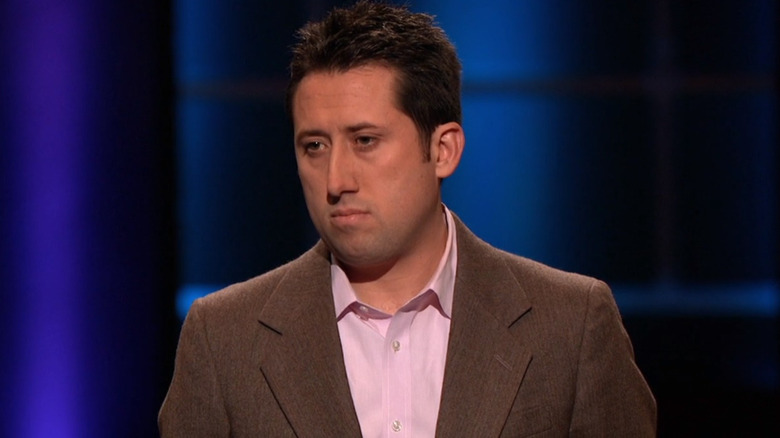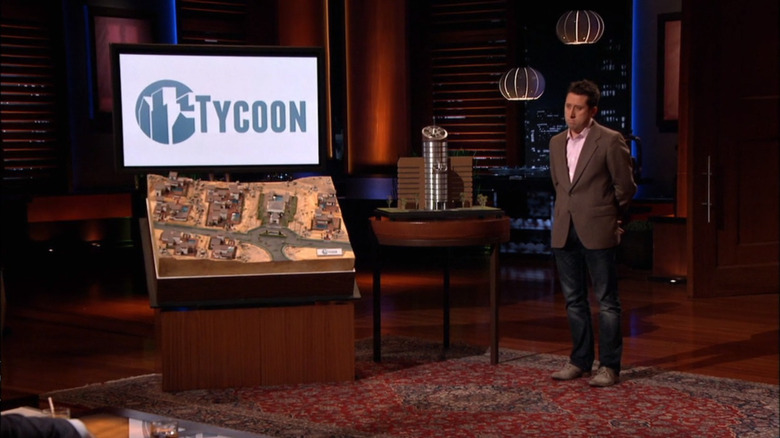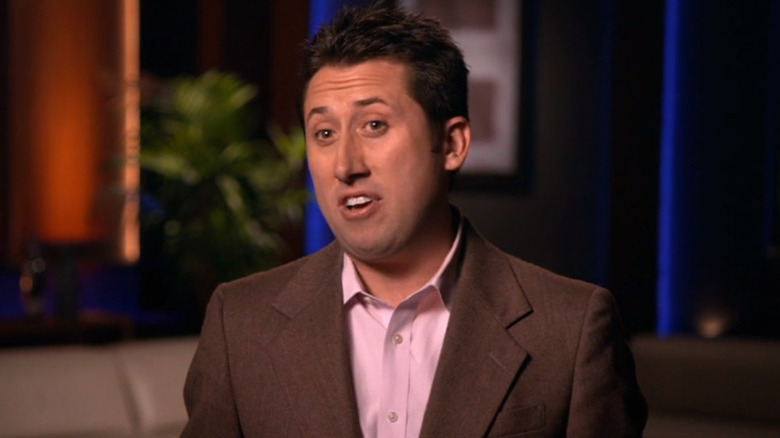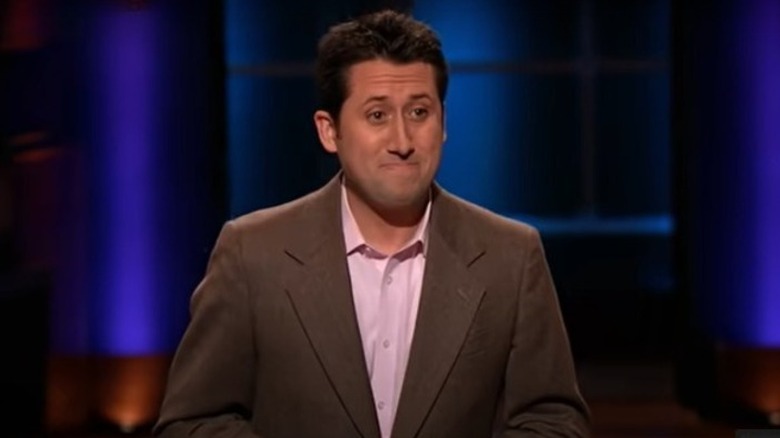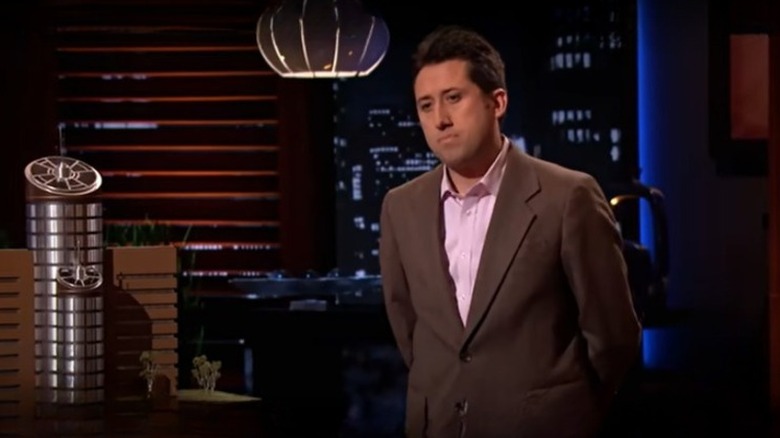Whatever Happened To Tycoon Real Estate After Shark Tank?
Real estate shenanigans may be a TV genre mostly confined to the realm of HGTV, but there is at least one notable time that the subject made its way onto ABC's "Shark Tank." Back in 2015, one of the various pitches to feature on Season 6 of the show was former AT&T vice president Aaron McDaniel's business, Tycoon Real Estate.
As its name suggests, TycoonRE was conceived as a web-based real estate crowdfunding platform that allows users to invest in property quickly and easily. In an ideal scenario, customers could make minuscule investments that would balloon into massive gains, transforming them into bona fide real estate tycoons. For some, the thrust of TycoonRE might sound too good to be true — or, perhaps, idealistic to a fault. That's certainly what the Sharks think, as McDaniel and his business walk out of "Shark Tank" with no deal secured.
However, TycoonRE's failure to land a deal on the show didn't spell the end of the company, and viewers may be interested to hear whether the business ever found success or if things kept tumbling downhill.
What happened to Tycoon Real Estate on Shark Tank?
Aaron McDaniel's TycoonRE pitch to the Sharks marks one of the various times that "Shark Tank" got rather heated. The entrepreneur enters the Tank hoping for a $50K investment in exchange for a 5% stake in the company, but that proves to be quite a daunting task almost immediately.
Even before McDaniel finishes introducing the concept behind TycoonRE, Mark Cuban expresses that he hates the idea and is dropping out early, making for quite an uncomfortable moment. While the other Sharks aren't necessarily as reactionary to the pitch, they are similarly unenthused and feel that the business is an unproven concept and has many potential flaws. One by one, all of them drop out until just Kevin O'Leary is left. The host makes a hail mary counteroffer to McDaniel of $50K in exchange for 50% ownership of TycoonRE, but the entrepreneur doesn't take the deal.
In a subsequent interview with KF Brand Studio, McDaniel elaborated on why he decided to reject O'Leary's deal. According to the businessman, he had privately received seed funding valued at 25 times the valuation of O'Leary's offer. "There was really no way I could accept it and still be true and uphold my fiduciary responsibilities to my other investors, and so I had to say no," he explained.
Tycoon Real Estate After Shark Tank
Aaron McDaniel and TycoonRE may not have had the most positive "Shark Tank" experience, but the business did gain one thing from featuring on the show: the "Shark Tank" effect. Indeed, like many other products and services to appear on the series, consumer attention toward TycoonRE skyrocketed immediately after its episode aired. In fact, it reached the point where the company's website crashed due to high traffic. "Ultimately, we got thousands of new users for our platform and a lot of publicity for it," McDaniel told KF Brand Studio. However, the biggest impact of the "Shark Tank" effect was still yet to come.
In November 2015, mere months after TycoonRE featured on "Shark Tank," the now-infamous business was acquired by a group of five major crowdfunding platforms, including companies like American Homeowner Preservation, Patch of Land, and Peer Realty. With the deal, TycoonRE became the first ever real estate crowdfunding platform to be acquired. In the press release announcing the news, Patch of Land CEO Jason Fritton said that the joint venture would be an opportunity to "set the record straight" on TycoonRE after its controversial TV appearance.
Is Tycoon Real Estate Still In Business?
It looks like TycoonRE's moment in the sun has officially passed. The service had merged with a consortium of five crowdfunding real estate companies in 2015 for an unknown amount of cash. It announced its closure in 2016 via its X, formerly known as Twitter, account. At the time of the merger, the consortium explained that it was planning on relaunching the brand, and TycoonRE was re-launched as preREO, a service which concerned itself with discount mortgages and bringing about consumer investments in same. But it looks like the whole venture might be underwater now. It relaunched again in 2020.
The PreREO website, where TycoonRE's url once redirected to, has been down for maintenance for some time, and with it any sign of TycoonRE's existence. PreREO hasn't updated its Facebook, Instagram and X accounts since 2023, and its YouTube channel since 2024. So all in all, it looks like a dead duck. Perhaps Mark Cuban was right to stay away from this one.
What's Next For Tycoon Real Estate's Founder?
Aaron McDaniel seems to have gotten out while the getting is good during the initial merger, and has moved on to a fresh and fascinating new career. He teaches business administration and general management at UC Berkeley's Haas School of Business, and has created two other companies – Access Invest and Pong360 — which have since been acquired. He's also got a diverse portfolio of other ventures: He's a national advisory board member for AP Business Principles, and is a founding partner of Global Class Marketing, a management consultation firm. He's written a book on business also called "Global Class," which made the Wall Street Journal bestsellers list.
Somehow, McDaniel has enough time left over to chair the charity Create the Change, which helps connect kids with charities in their neighborhoods for volunteering. McDaniel also acts as a member of the Full Circle Fund. No endorsement, even from a Shark, could ever top that much success.
